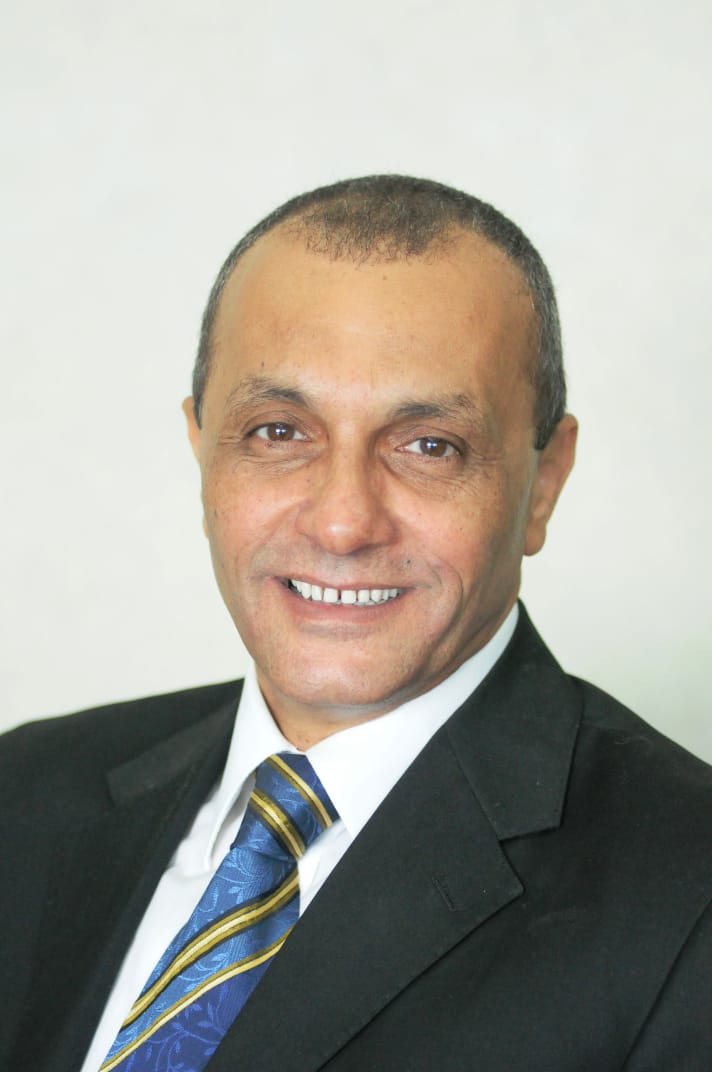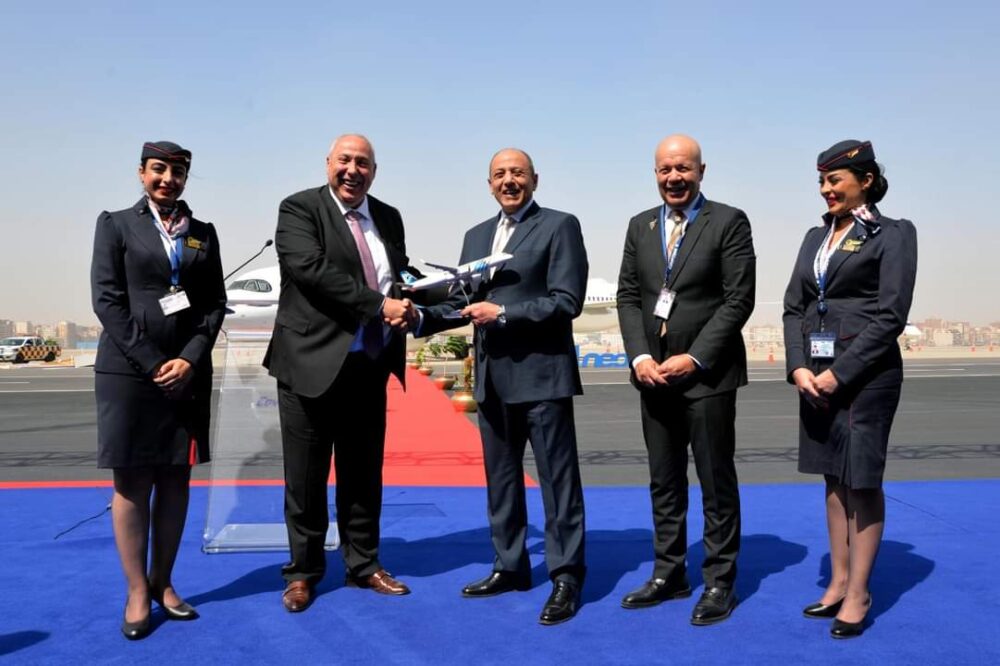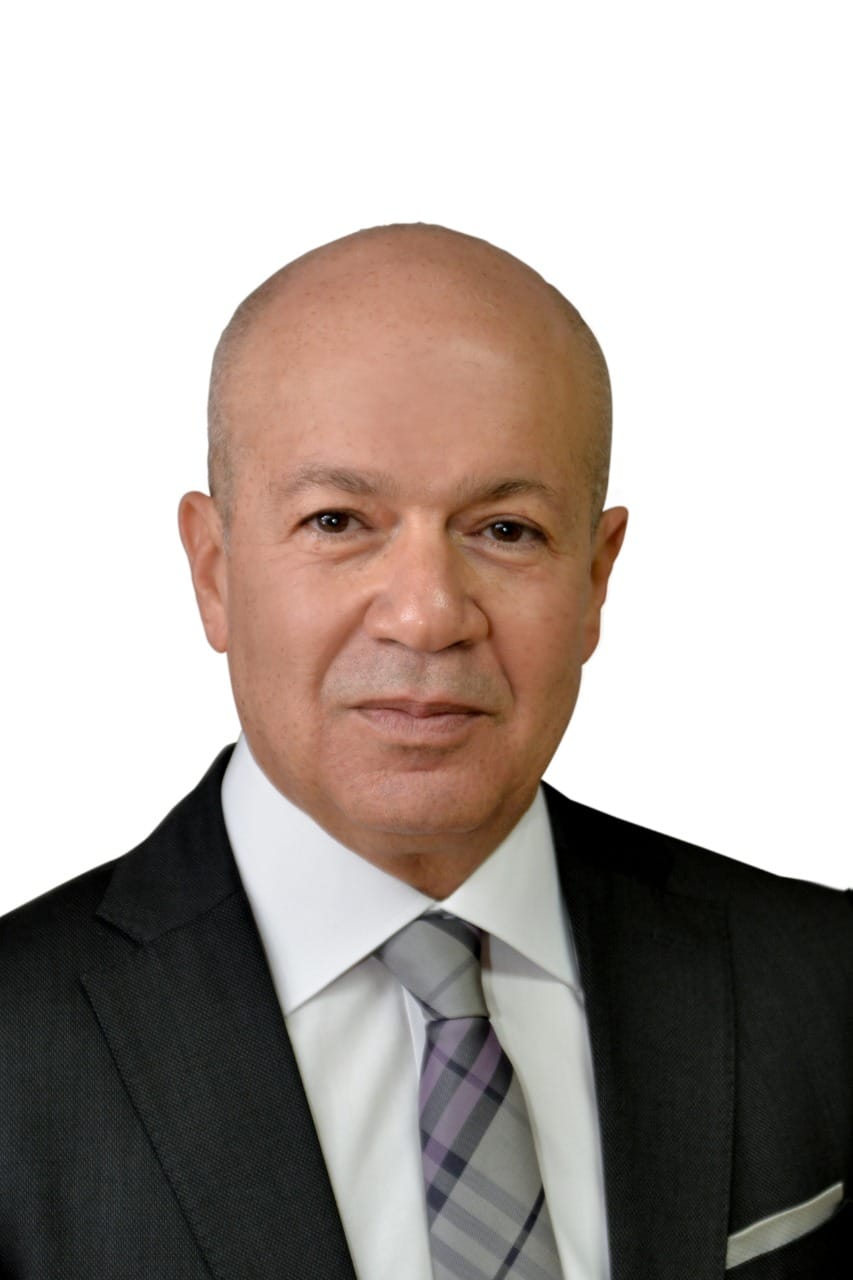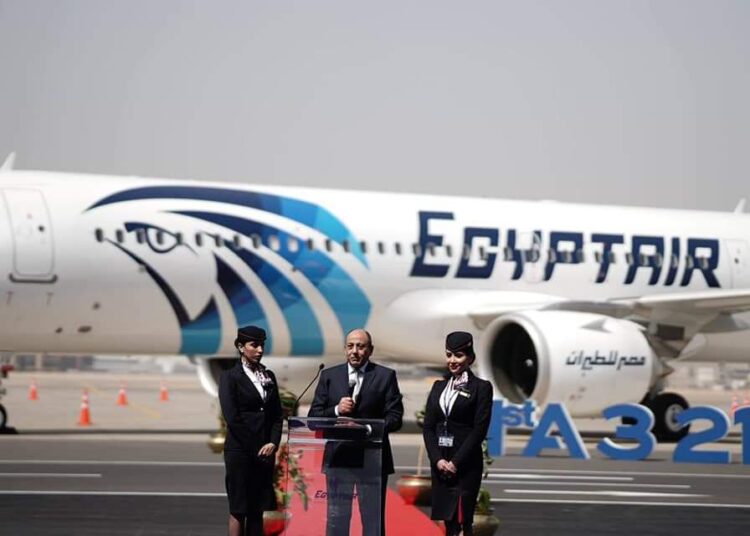
By Mohamed Attia
EGYPTAIR took delivery of its first A321neo from Airbus’ Delivery Centre in Hamburg, making the airline the first African operator of the aircraft.
Minister of Civil Aviation Mohamed Abbas attended the delivery of the plane, which arrived at Cairo International Airport from Hamburg Airport in Germany, to be the first airline in Africa to include this model in its fleet.

The ceremony, held in Terminal 4 at Cairo International Airport, was attended by Chairman of the Holding Company for EgyptAir, Yehia Zakarai and Mikail Houari, President of Africa and Middle East at Airbus, in addition to a group of civil aviation leaders, representatives of the British, German and French embassies, officials of Airbus and CFM companies specialised in the manufacture of engines.
The A321neo is the largest-fuselage member of Airbus’ best-selling single-aisle A320 Family and brings a 20 per cent reduction in fuel consumption and emissions per seat compared with previous generation competing aircraft. This enables EGYPTAIR to benefit from enhanced efficiency and be able to deliver on its commitment to sustainability, whilst reducing operating costs.
EGYPTAIR has specified a high comfort, two-class configuration with 16 business class seats and 166 economy class seats, and will increase the airline’s single aisle capacity to the Middle East, Africa and Europe. The aircraft is on lease from AerCap and is powered by CFM engines.

Addressing the ceremony, Minister Abbas said that he felt pleasure to celebrate with the national air carrier EGYPTAIR the arrival of the Airbus A321 neo model within the second group of the contract signed in February 2018.
The minister of civil aviation referred to the fruitful co-operation with Airbus as one of the partners in the air transport industry. This co-operation dates back to the early 1980s following clinching the first deal to purchase 8 Airbus aircraft (A300-B4). Since then, Airbus became an essential component in the modernisation of the national company’s fleet.
Despite the challenges that affected the civil aviation sector over more than past ten years, especially during the coronavirus pandemic and the global economic changes the world is currently witnessing, the national company has continued its comprehensive plan to modernise the air fleet with the aim of enhancing its capabilities for survival, Minister Abbas said.
Abbas said that his ministry has managed to maintain steady steps in consolidating its activities, expanding the airline network, and training distinguished professional human resources in all civil aviation sectors.
Minister Abbas stressed that the Ministry of Civil Aviation, thanks to the wise political leadership, is interested in developing and modernising the civil aviation system. He said that his ministry has adopted a comprehensive strategy based on sustaining the development process despite any challenges, raising the efficiency of airports, increasing their capacity, and improving the services provided to passengers.
He said that the ministry’s strategy also focused on expansion of low-cost aviation activity, strengthening the private sector’s contribution in civil aviation projects, training the human resources according to the latest scientific and technological systems, and making the best use of new and renewable energy to reduce environmental pollution.

For his part, Chairman of EgyptAir Yehia Zakaria said that the national air carrier’s fleet has become one of the latest air models in the Middle East and Africa. “We are proud of being the first airline in Africa to operate this type of Airbus A321neo aircraft, which is equipped with CFM engines,” Zakaria said.
Zakaria said that the Ministry of Civil Aviation has drawn up an overall ambitious plan to upgrade the company’s fleet by 2025.
Chairman of Airbus in Africa and the Middle East, Mikail Houari, said in his speech that Airbus is proud of its success in building long-term relations with EgyptAir’s partners, extending for more than 40 years, since the delivery of first A300 aircraft.
This modern aircraft joins EGYPTAIR’s Airbus fleet of 12 A220s, 8 A320neos, 2 A320ceos 4 A330-200, 4 A330-300. With the addition of the A321neo, EGYPTAIR is demonstrating continuous ambitions to expand its Airbus fleet to meet current and future demand.
Across all its aircraft families, Airbus’ unique approach ensures that aircraft share the highest commonality in airframes, on-board systems, cockpits and handling characteristics. This significantly reduces operating costs and maximises the airline’s profitability.
The delivery flight from Hamburg to Cairo was powered by 34 per cent Sustainable Aviation Fuel (SAF) blend. SAF is a sustainably-produced aviation fuel made from feedstocks ranging from used fat, oil and grease to municipal and forestry waste. Compared to fossil jet fuel, SAF has been demonstrated to result in an up to 80 per cent reduction in CO2 emissions across the entire SAF lifecycle. Therefore, it is considered as a key enabler to contribute to the decarbonisation of aviation.






Discussion about this post